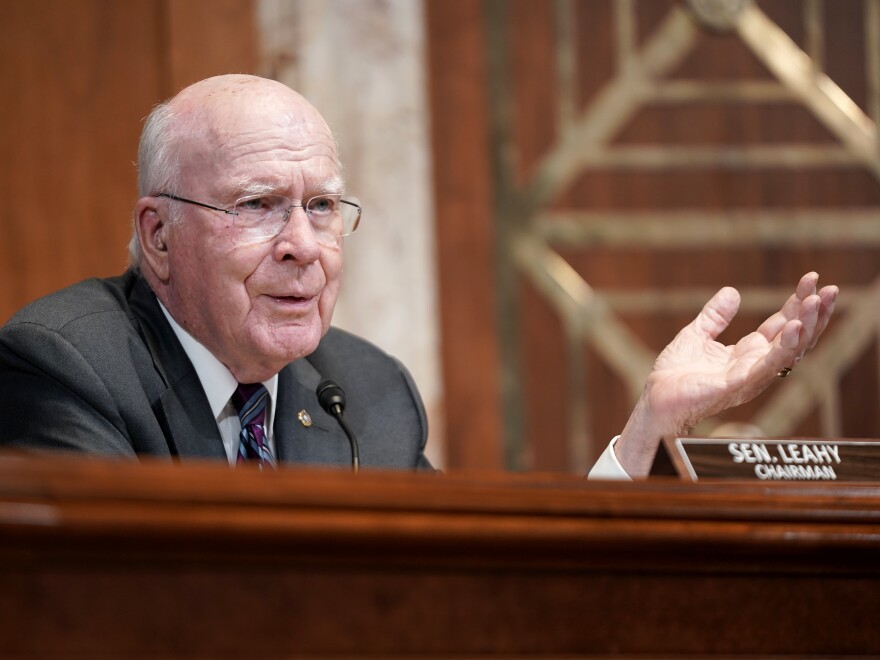Senate Democrats introduced legislation aimed at restoring the power of the Voting Rights Act on Tuesday, reinvigorating their push to protect voting rights against a slew of voting restrictions enacted in Republican-led states.
Vermont Democratic Sen. Patrick Leahy introduced the bill Tuesday, saying that "tens of thousands of Americans are being disenfranchised under the guise of state law."
"This tidal wave of voter suppression efforts seeks to bend the arc of equal justice and equal rights backward," Leahy said on the Senate floor. "We should not allow that to stand. Action in Congress is desperately needed."
The House of Representatives passed a version of the legislation, named for the late Congressman and civil rights icon John Lewis of Georgia, earlier this year.
It is aimed at restoring voting protections that were lost in two Supreme Court decisions over the course of the last decade, Shelby County v. Holder and Brnovich v. Democratic National Committee.
While bipartisan majorities in Congress have reauthorized the Voting Rights Act five times, this year Democrats have been unable to push the legislation through in the closely divided Senate. The Senate Judiciary Commitee is planning a hearing on the bill Wednesday.
This effort is separate from a pared-down voting rights and elections bill introduced last month. That legislation, the Freedom To Vote Act, was the product of negotiations among a group of Senate Democratic lawmakers including Majority Leader Chuck Schumer and West Virginia Sen. Joe Manchin. The Freedom To Vote Act would establish some federal guidelines on ballot access, in response to voting restrictions enacted by Republican-led state legislatures around the country.
Manchin had been the lone Democratic holdout in supporting the For The People Act, a more sweeping piece of legislation, and has been in conversation with Republicans, hoping to win over some support for the scaled back bill. So far, Manchin has found no takers among the 50 members of the Republican caucus.
Senate Minority Leader Mitch McConnell has said it would receive no Republican support, criticizing the legislation as a federal takeover of state election adminstration.
Schumer on Tuesday called the John Lewis Voting Rights Advancement Act an "important complement" to the Freedom To Vote Act, and he's promised to hold a vote on the Freedom to Vote Act as soon as this week.
Other Democratic lawmakers who spoke on the Senate floor, including Georgia Sen. Raphael Warnock, said it was essential to pass both pieces of legislation.
"The John Lewis Voting Rights Advancement Act builds for us a fire station to protect against future fires," he said. "The house of democracy is already on fire, so we need the John Lewis Voting Rights Advancement Act, but we also need the Freedom to Vote Act. We've got to put out the fire, we've got to build a fire station for future fires."
Warnock, who counted the late Congressman Lewis as one of his parishioners at Ebenezer Baptist Church in Atlanta, said that he believed as Lewis did, that voting is "a sacred undertaking."
"Voting rights are preservative of all other rights. Voting rights are about the foundation of our democracy," he said. "I believe that if the worlds greatest deliberative body can't find a way forward to get this done history will judge us harshly — and rightly so."
Copyright 2021 NPR. To see more, visit https://www.npr.org.




